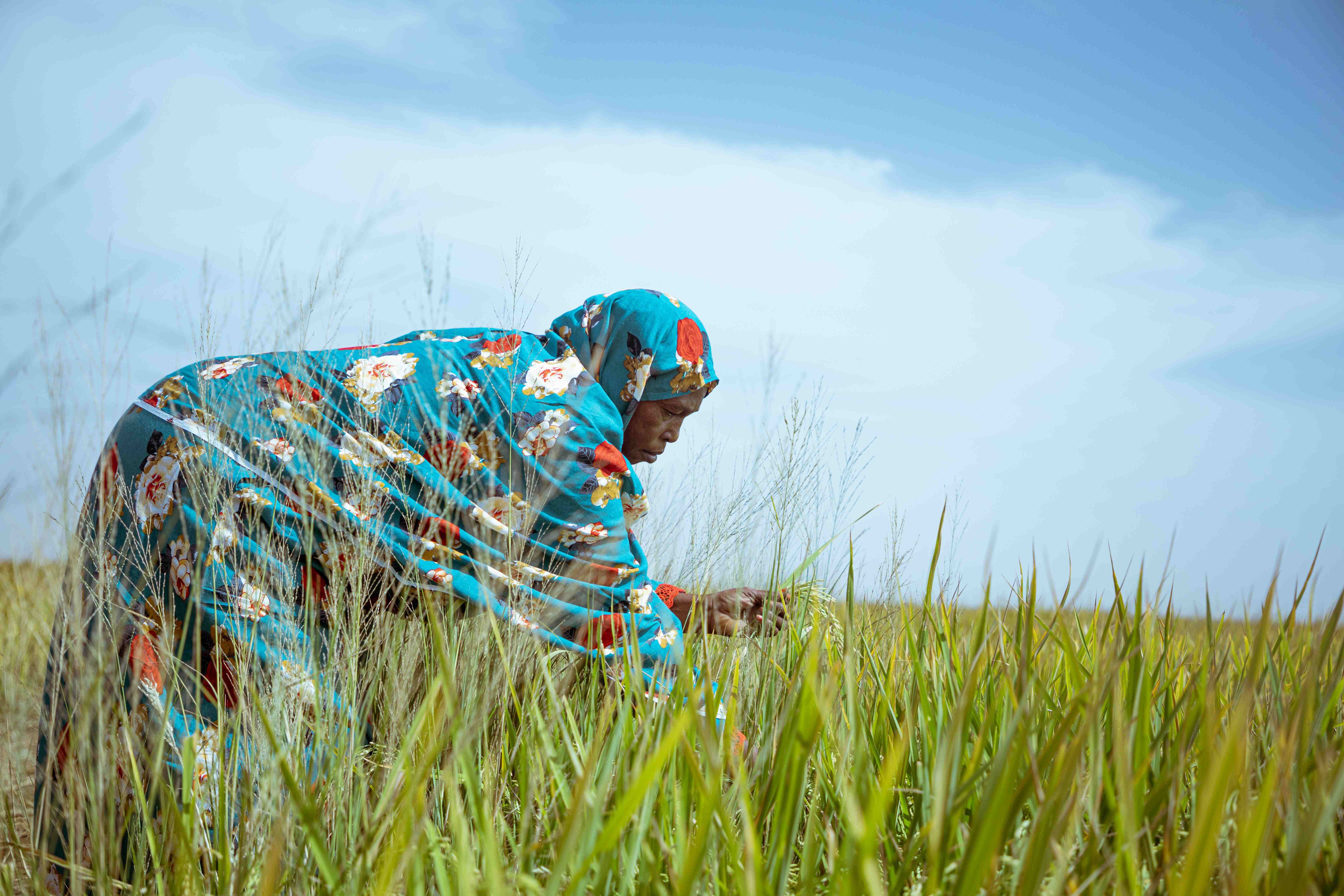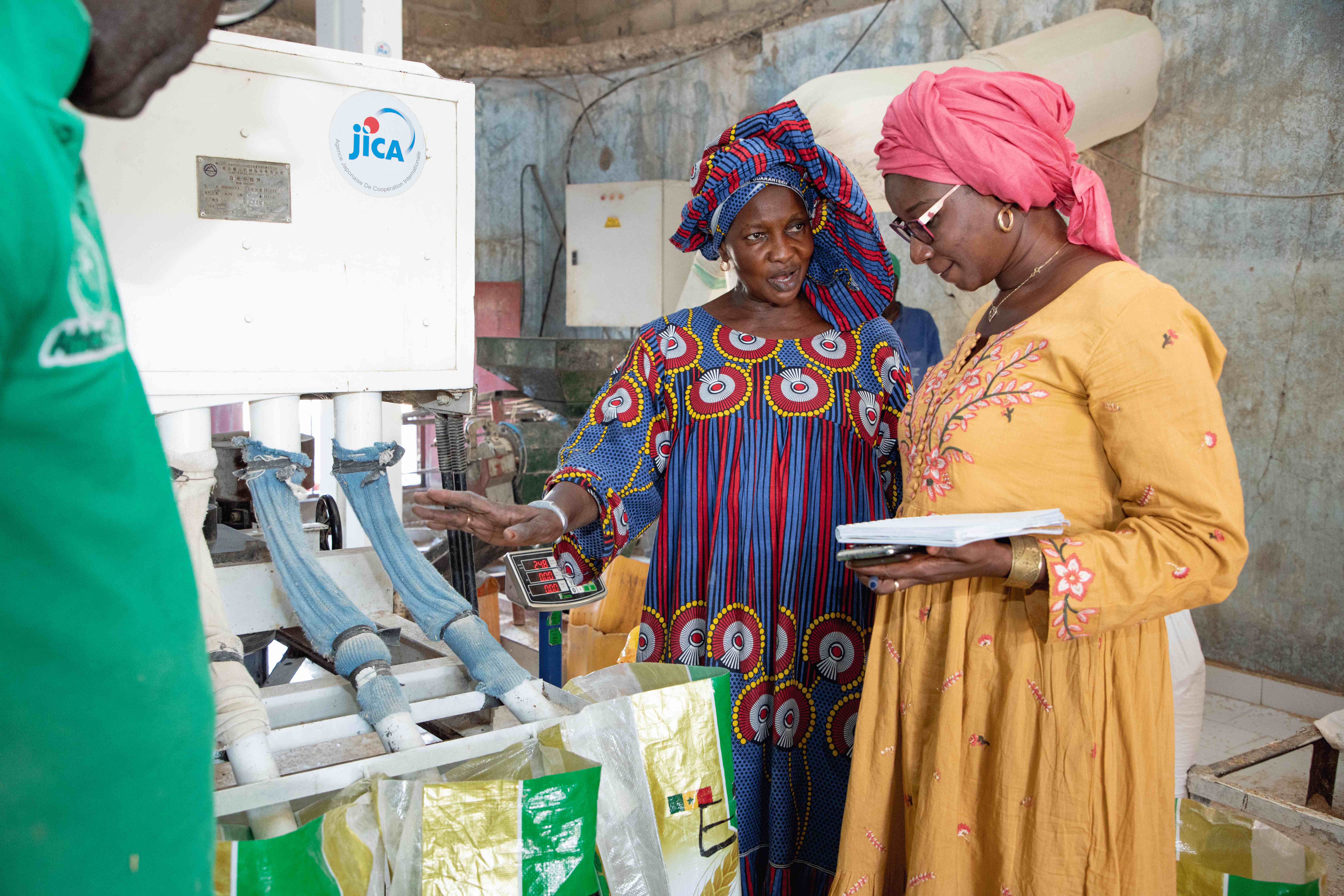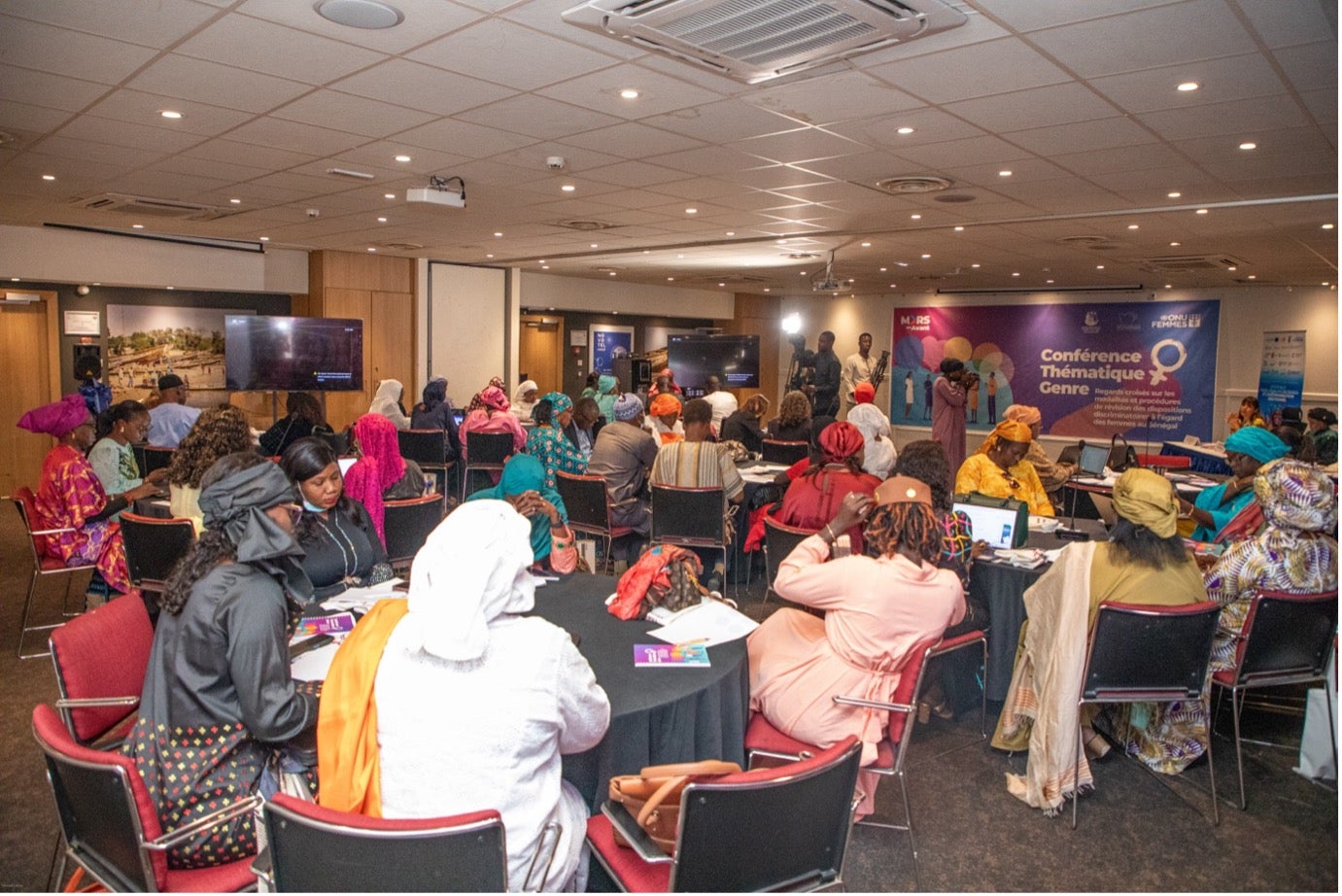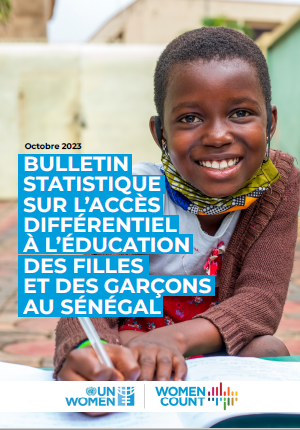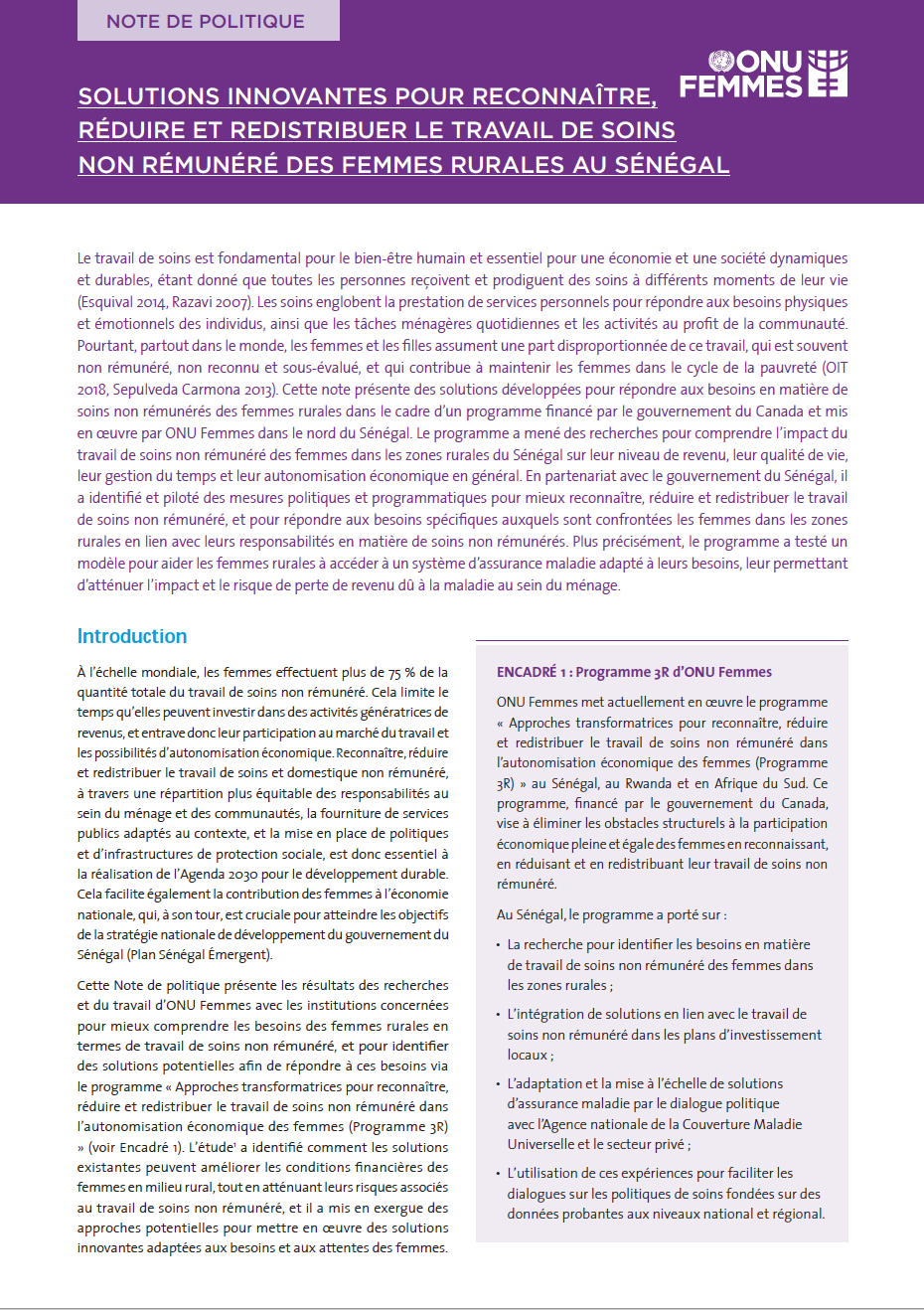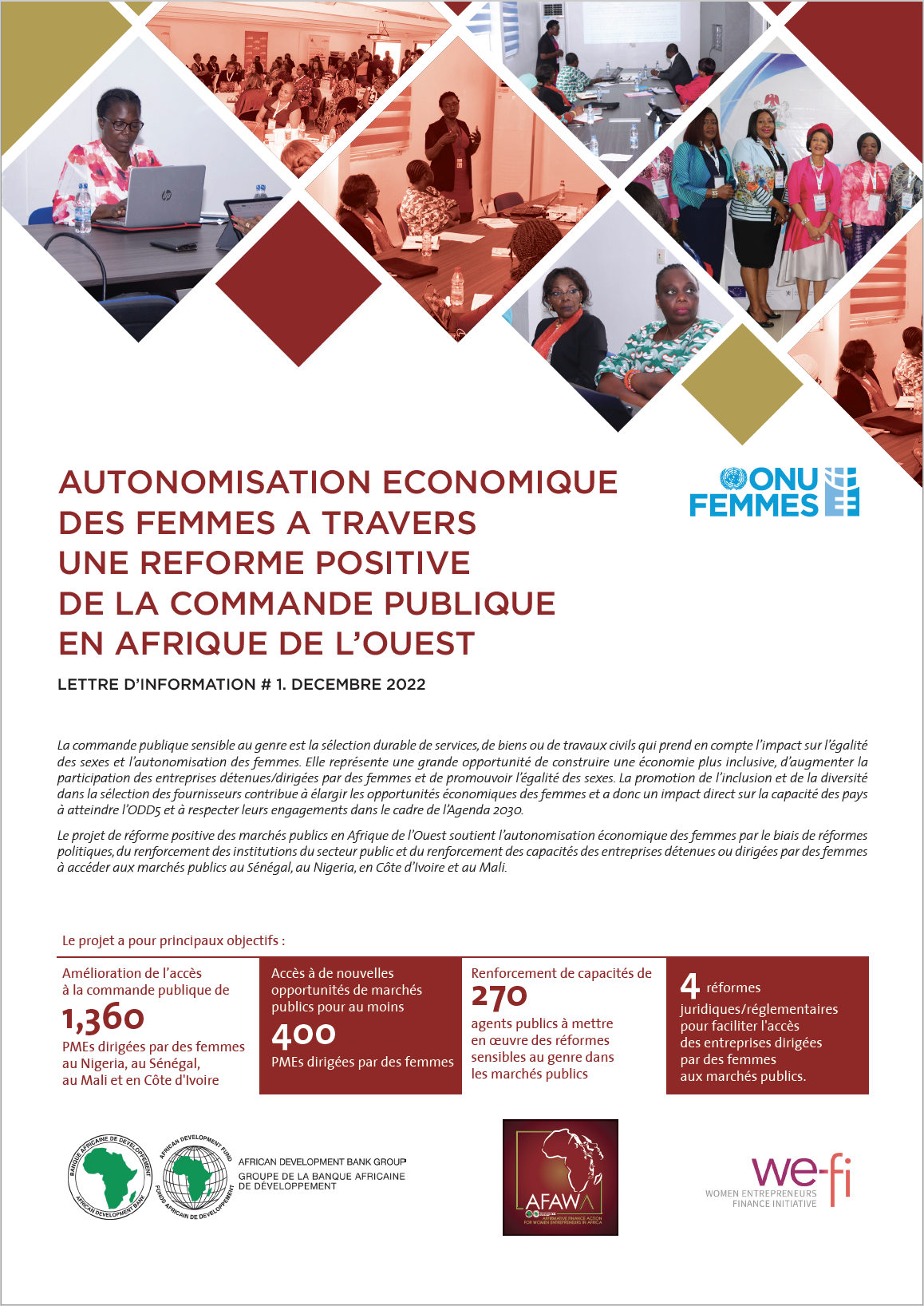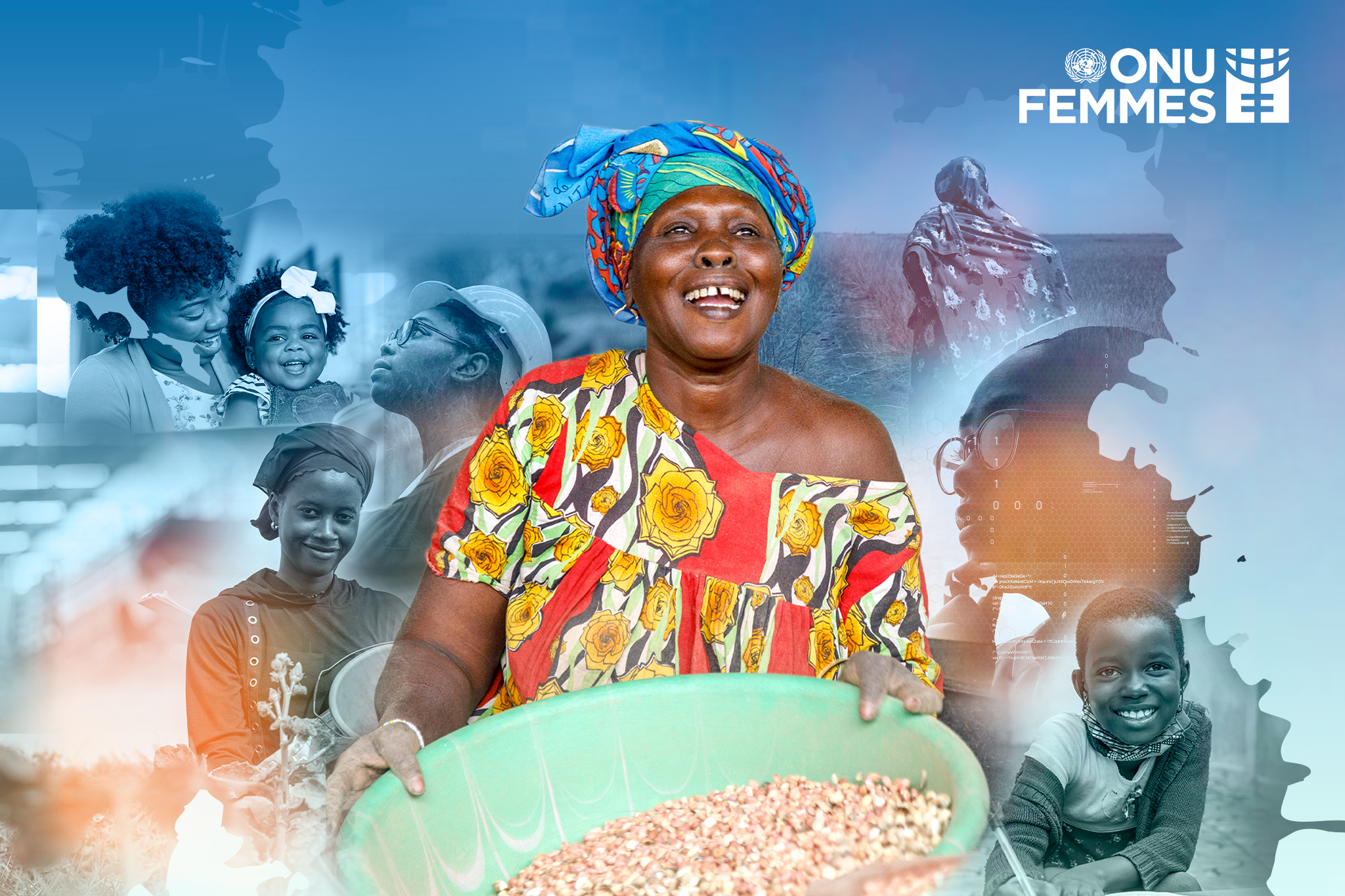
SENEGAL

UN Women Senegal is the representation of the United Nations entity for gender equality and women's empowerment in Senegal. Within the country, since 2012, it has been implementing initiatives aimed at achieving the Sustainable Development Goals (SDGs) by 2030, with particular focus on SDG 5, which specifically targets gender equality.
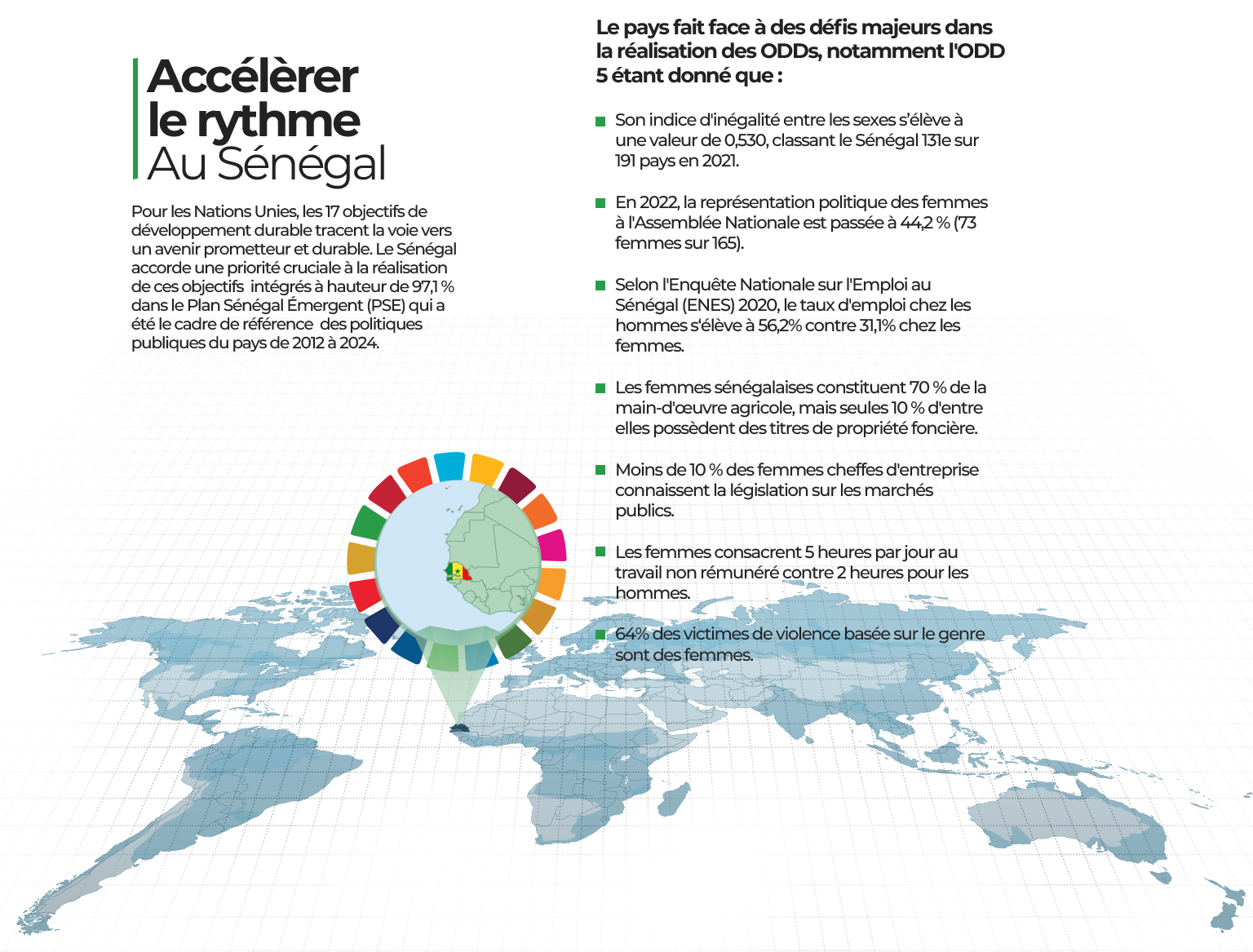
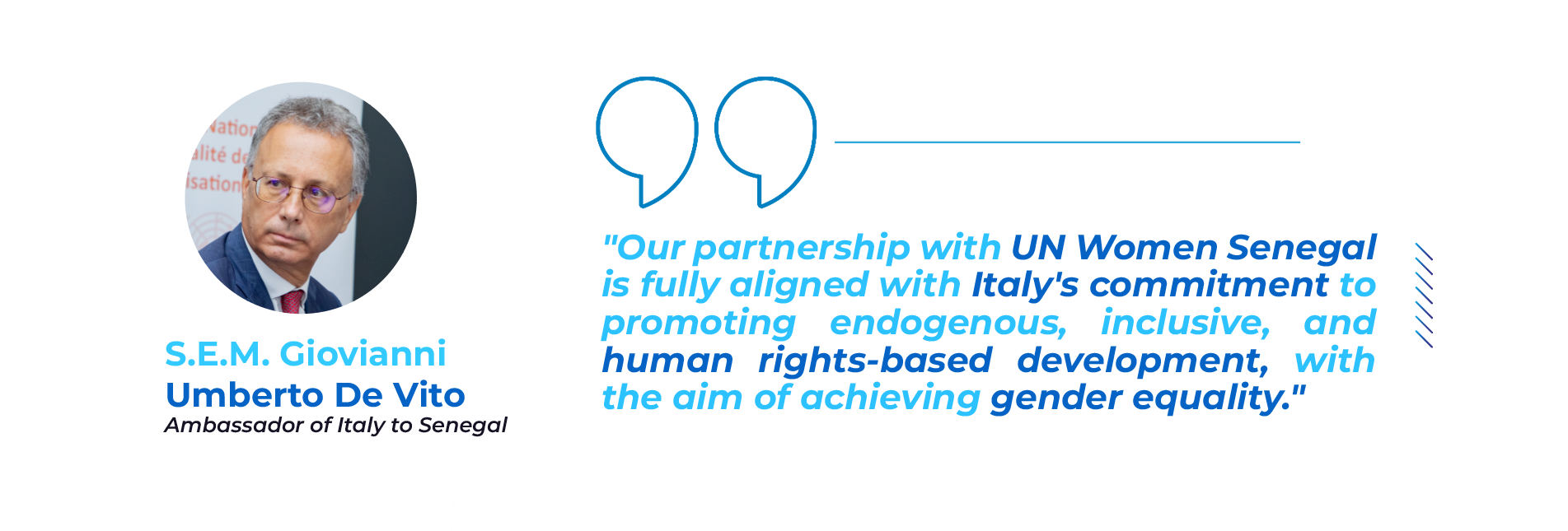
PROGRAMMES & OBJECTIVES
UN Women Senegal offers its expertise, advocates, and acts through four major programs it implements to achieve significant objectives:
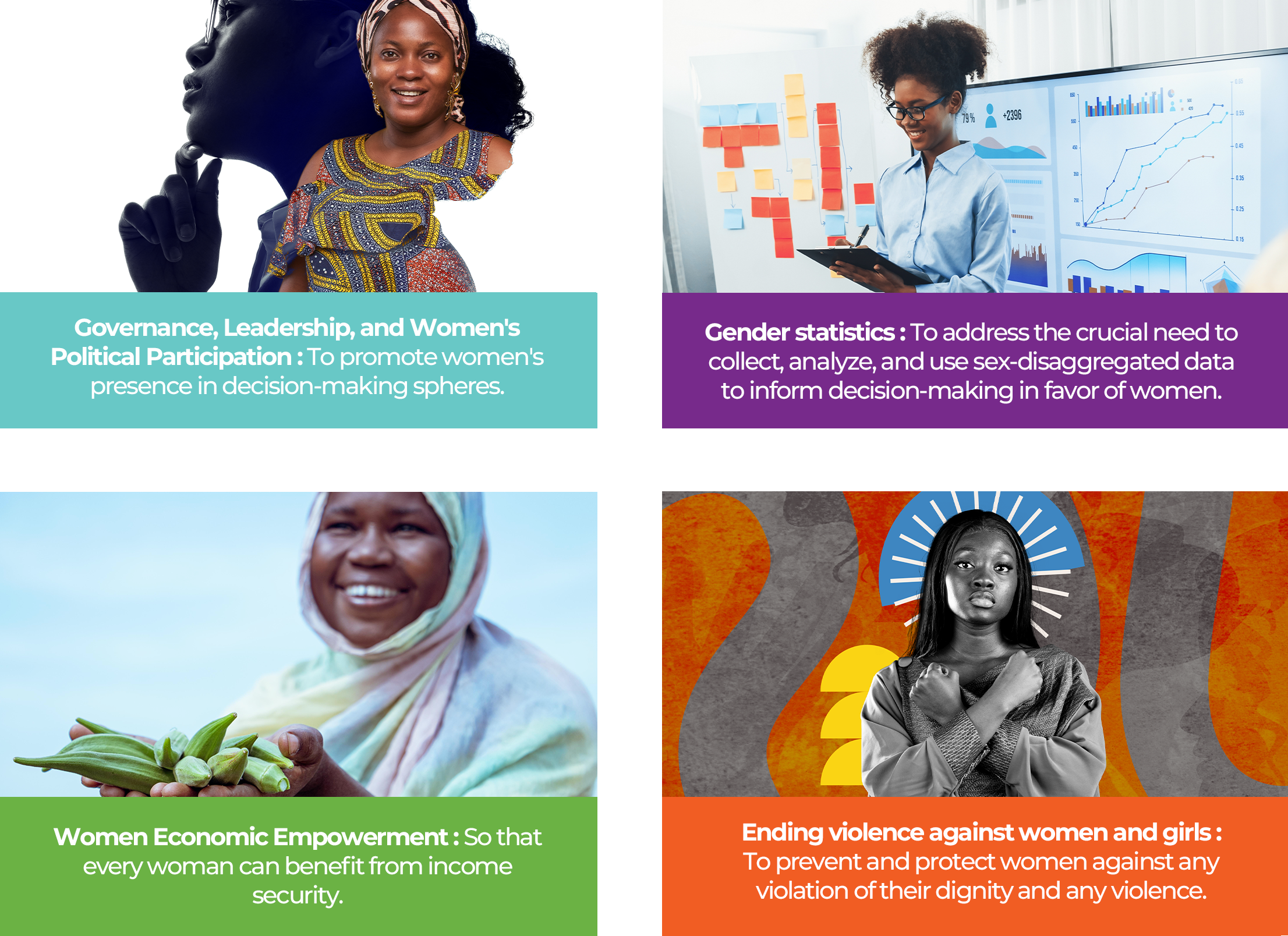
KEY FIGURES
The quality of the implementation of various programs and projects by UN Women Senegal has yielded increased results impacting the well-being of communities. The figures below reflect the extent of these actions.
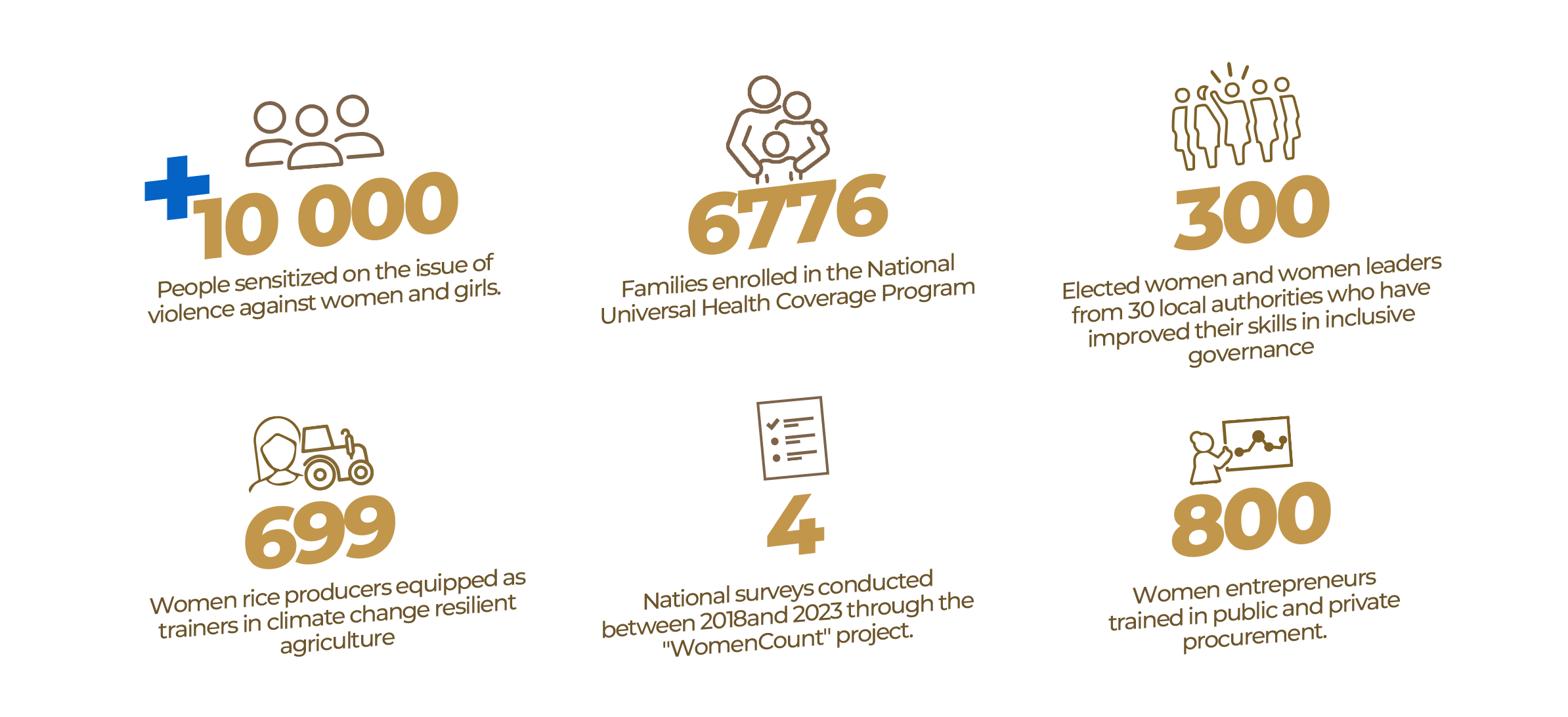
VOICES FROM THE FIELD
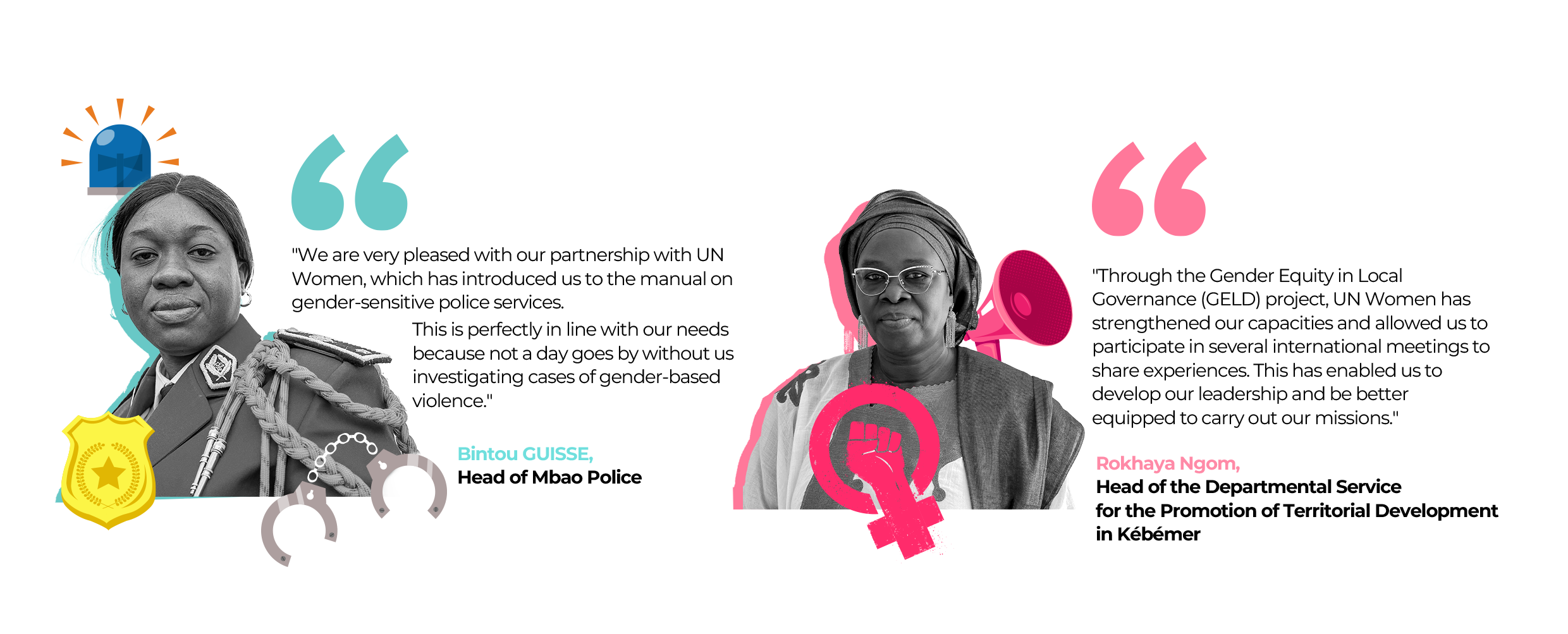
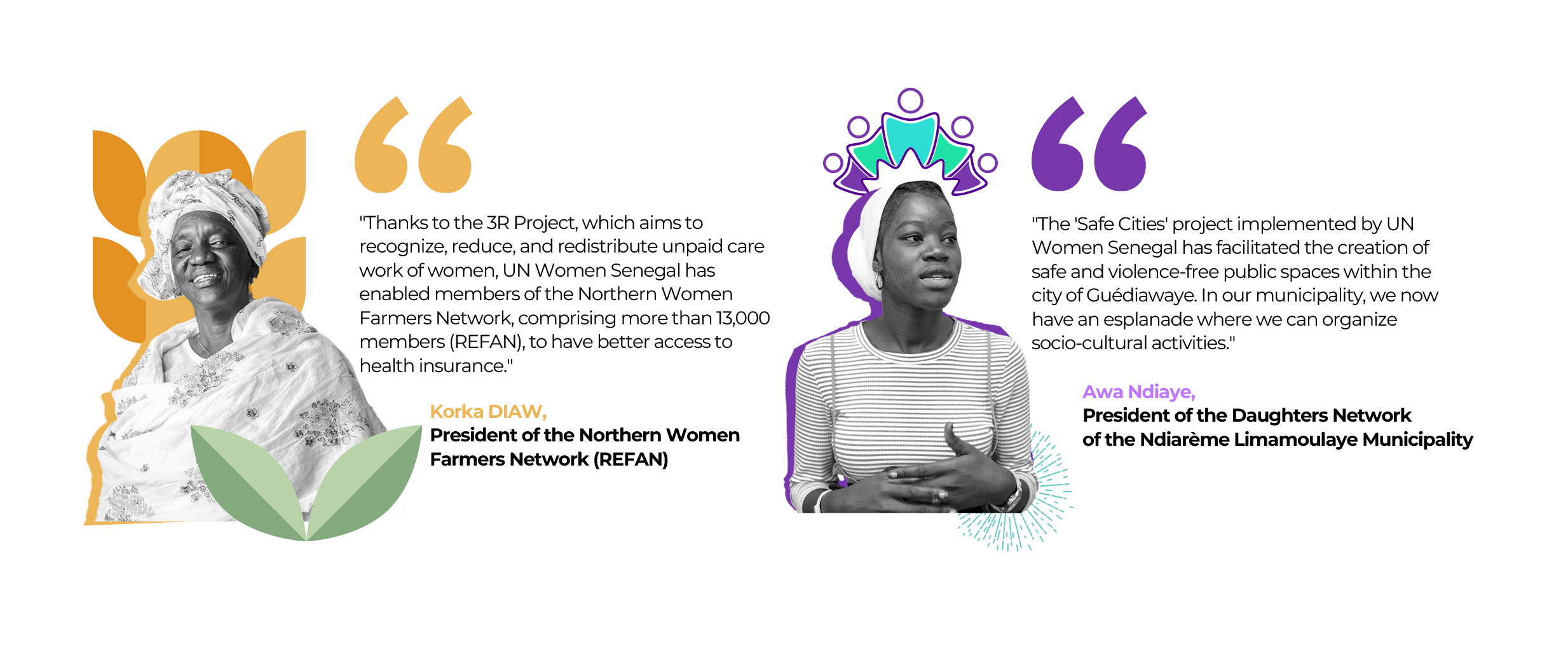
LATEST NEWS
Latest news
14/04/2025
